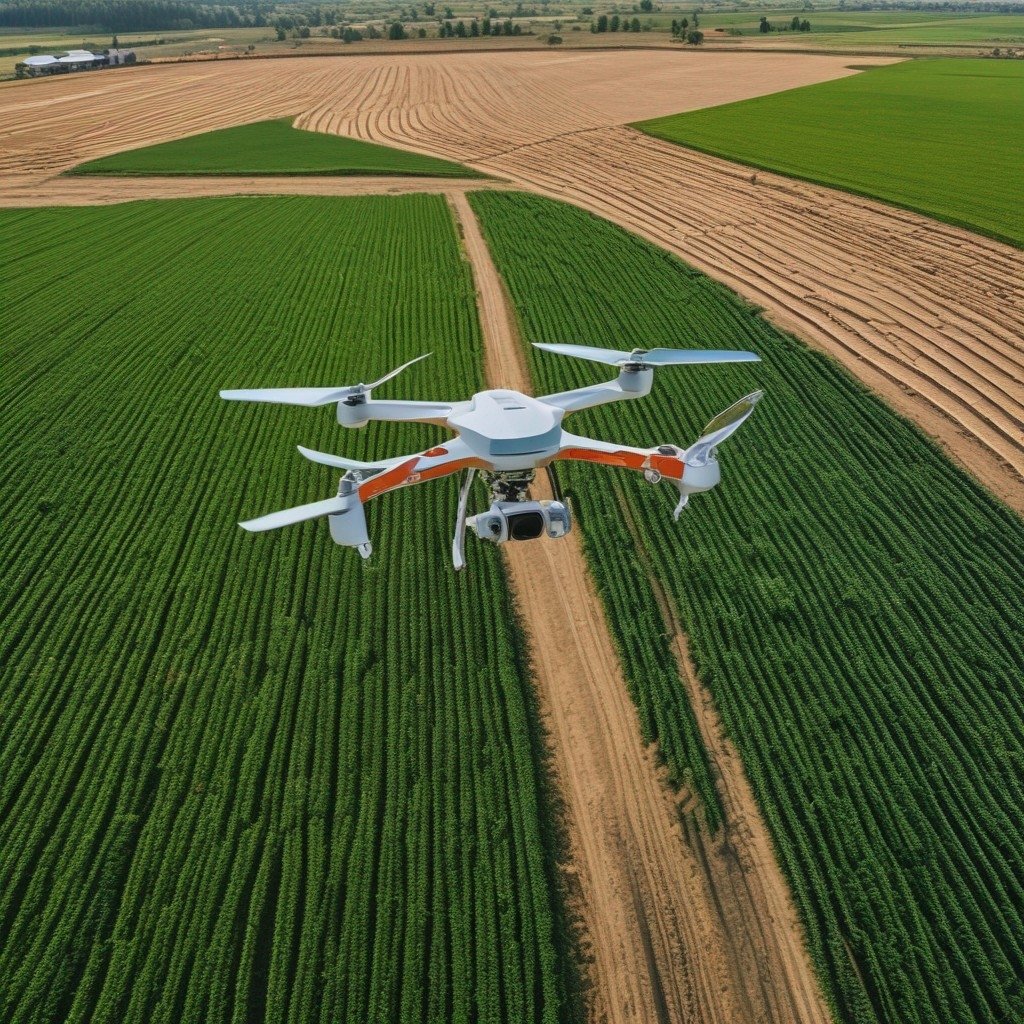- 1.Introduction
- 2.Lessons from Agri-business Leaders
- 2.1. Understanding Market Dynamics
- 2.2. Innovation and Technology in Agri-business
- 2.3. Sustainability and Environmental Considerations
- 2.4. Financial Management and Access to Capital
- 2.5. Building Strong Relationships and Networks
- 3. Overcoming Challenges in Agri-business
- 3.1. Adapting to Climate Change
- 3.2. Navigating Policy and Regulatory Barriers
- 3.3. Addressing Labor Shortages
- Conclusion
- Call to Action

Introduction
What does it take to build a resilient Agri-business in today’s volatile and competitive environment? Whether you’re just starting out or looking to scale, the lessons from industry leaders can offer invaluable insights. Successful agricultural entrepreneurs have weathered the storms of economic downturns, climate change, and shifting consumer demands. Yet, they have emerged stronger and more prepared to face future challenges. What strategies did they use to overcome these obstacles? In this post, we will delve into their experiences and explore how you, too, can build a robust and sustainable Agri-business. Keep reading to discover actionable tips and industry-proven strategies.
Thank you for reading this post, don't forget to subscribe!Lessons from Agri-business Leaders
1. Understanding Market Dynamics
To succeed in the Agri-business sector, understanding the market dynamics is crucial. Seasoned agricultural entrepreneurs continuously study consumer preferences, monitor supply chain trends, and predict future demands. For example, Bayer Crop Science constantly analyzes market trends to offer farmers more precise solutions for crop management. By adapting quickly to consumer needs and market shifts, successful Agri-business owners ensure they remain competitive.
Moreover, they recognize that Agri-business extends beyond just growing and selling crops. It involves value addition through packaging, marketing, and distribution, which can open up new revenue streams. As one industry leader said, “The ability to pivot and explore new markets is what sets resilient Agri-businesses apart.”
2. Innovation and Technology in Agri-business
Technology is transforming Agri-business at an unprecedented pace. From drones that monitor crop health to AI-powered software predicting yield, innovation is essential for staying competitive. Entrepreneurs like Kimbal Musk, co-founder of Square Roots, emphasize the importance of integrating technology into farming. In his words, “Agri-businesses that embrace technology are future-proofing their operations.”
Smart irrigation systems, precision farming, and automated machinery not only enhance productivity but also reduce costs. The digital transformation of Agri-business allows farmers to collect and analyze data, which improves decision-making. For example, John Deere’s advanced farming equipment incorporates GPS and AI to optimize planting and harvesting processes.

3. Sustainability and Environmental Considerations
Sustainability is no longer a luxury—it’s a necessity for Agri-businesses looking to thrive. As climate change alters growing seasons and impacts crop yields, leaders in the industry have prioritized eco-friendly practices. For instance, General Mills has committed to regenerating 1 million acres of farmland by 2030, an initiative that focuses on soil health and biodiversity.
Agri-business owners are realizing that sustainable practices not only help the environment but also make financial sense. By adopting organic farming methods, reducing chemical usage, and focusing on soil health, they are building more resilient businesses that can withstand the pressures of environmental degradation.
4. Financial Management and Access to Capitalism
Many Agri-businesses face financial challenges, especially in the early stages. Access to capital, particularly for small and medium-sized enterprises, remains one of the biggest hurdles. Successful Agri-business leaders recommend diversifying revenue streams and maintaining robust financial records to attract investors.
Take the example of agricultural entrepreneur Sara Menker, founder of Gro Intelligence. Her company uses data to help farmers make informed decisions about their crops, ensuring that they can manage risk and optimize profits. Her advice? “A clear business plan and financial management strategy are key to long-term success.”
5. Building Strong Relationships and Networks
Building a resilient Agri-business often requires strong relationships within the industry and beyond. Whether it’s forming partnerships with suppliers, collaborating with research institutions, or engaging with policymakers, successful Agri-business leaders know that networks matter. These relationships help them stay informed about industry trends, access resources, and navigate challenges more efficiently.
For instance, partnerships between Agri-business owners and local communities can provide mutual benefits. Farmers that collaborate with agricultural cooperatives often gain access to better markets and pricing models, helping them scale their operations more effectively.

Overcoming Challenges in Agri-business
1. Adapting to Climate Change
Climate change is one of the most pressing challenges facing Agri-businesses today. Shifting weather patterns, droughts, and floods all affect crop yields. To overcome this, industry leaders are adopting climate-smart agricultural practices. Farmers are planting drought-resistant crops, using rainwater harvesting techniques, and leveraging predictive weather tools.
For example, The World Bank supports climate-resilient agricultural projects that emphasize adaptability and innovation. Agri-businesses that embrace these practices are better positioned to withstand environmental shocks and sustain their growth.

2. Navigating Policy and Regulatory Barriers
Agricultural policies and regulations can often be a barrier to growth, particularly in developing regions. Agri-business leaders must stay informed and actively engage with policymakers to ensure their interests are considered. Industry bodies like the International Federation of Agricultural Producers provide platforms for advocacy, helping farmers navigate regulatory challenges.
Successful Agri-businesses also comply with international standards to expand their market reach. Exporting agricultural products, for example, requires adherence to strict regulations, but those who can navigate this landscape effectively are able to tap into lucrative global markets.
3. Addressing Labor Shortages
Labor shortages are another significant challenge for Agri-businesses. As younger generations move away from farming, the pool of skilled agricultural workers continues to shrink. To combat this, industry leaders are focusing on automation and training. For instance, the use of autonomous machinery and robots is becoming increasingly common, reducing the dependency on manual labor.
Moreover, some Agri-businesses are investing in workforce development programs. By offering training and education to young people, they are encouraging the next generation of farmers and ensuring a steady supply of skilled labor in the future.
Conclusion
Building a resilient Agri-business requires a combination of adaptability, innovation, and sound financial management. Successful agricultural entrepreneurs have shown that with the right strategies, even the most significant challenges can be turned into opportunities. From embracing technology to focusing on sustainability, the lessons from industry leaders are clear: the future of Agri-business lies in resilience and innovation.
As the global population grows and the demand for food increases, the role of Agri-business will become even more critical. Entrepreneurs who are willing to learn from industry pioneers, adopt new technologies, and address environmental challenges head-on will be well-positioned to thrive.


